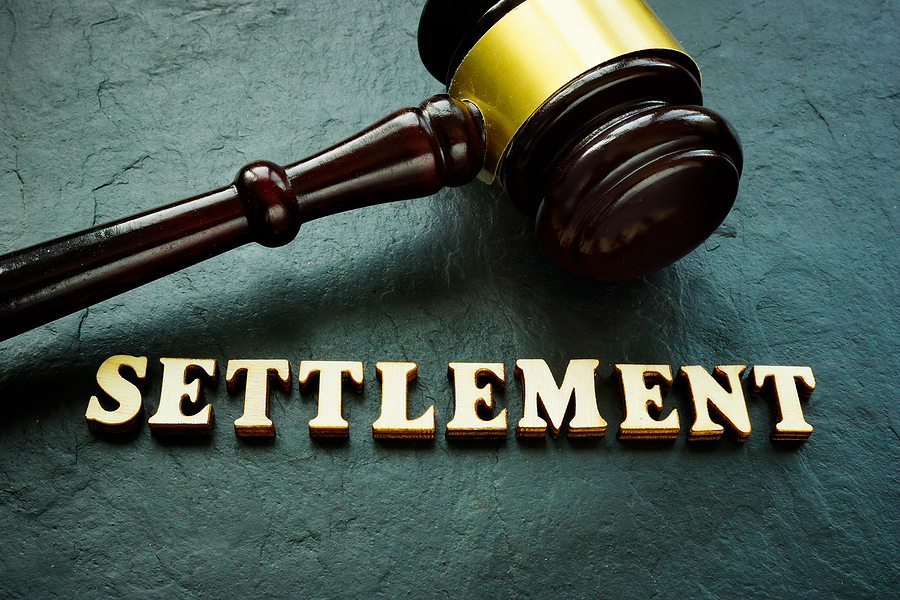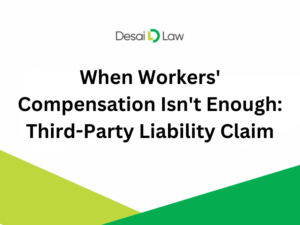After a car accident, some people try to settle their claims on their own. Most of them end up leaving money on the table. Insurance companies come armed with lawyers to protect their profits—and that means doing whatever they can to pay out nothing or as little as possible.
Even if you file a claim against your insurance company and the attorney from the insurance company acts as though they have your best interests in mind, they don’t—because your best interests will decrease the insurance company’s bottom line. They don’t care that you paid premiums for all those years. They care about themselves and the here and now.
All this is to say that how much you can depend on recovering from a car accident settlement may depend in large part whether you go it alone or come to the table with your own attorney who can vindicate your interests. Either way, how much you might recover comes down to what evidence of damages you can produce and how strong a case you can demonstrate.
Types of Damages You Can Recover
How much you can expect from a car accident settlement depends in large part on how much you could expect to recover from a court award of damages—i.e. legally mandated compensation. You might collect three different types of damages after a car accident. Two types, economic damages and non-economic damages, are compensatory damages.
Economic damages have a tangible monetary value, while non-economic damages do not. The purpose of compensatory damages is to make a victim whole again. If it weren’t for the accident, you would not have suffered certain expenses and impacts, which expenses and impacts should be accounted for by responsible parties. The compensation you receive covers certain expenses and impacts that you would not have otherwise had.
You might also recover punitive damages in certain circumstances. A court may order a defendant to pay punitive damages as a punishment for especially egregious actions, such as driving under the influence of alcohol or drugs. Punitive damages are not awarded to compensate but rather to punish and deter the defendant and others from engaging in egregious behavior in the future.
A plaintiff cannot recover punitive damages if they do not first recover economic damages. Filing for punitive damages typically requires an extra step during the trial phase. Victims typically will not receive an amount reflecting punitive damages unless they end settlement negotiations and take their case to a final hearing and obtain a favorable ruling.
Economic Damages
Car accident victims can typically recover economic damages, also referred to as special damages, which may include:
- Past medical expenses. These are expenses that you incurred because of the accident and are ongoing up until you settle your case. Past medical expenses may also include those a loved one incurred before they died as a result of their injuries from the accident, including ambulance costs, emergency surgeries, and other medical expenses incurred in an attempt to save your loved one’s life.
- Future medical expenses. These are medical expenses that you can expect following settlement or a court award due to necessary ongoing treatment. Future medical expenses may include follow-up appointments, additional surgeries, and additional therapies, such as physical therapy, cognitive therapy, occupational therapy, and psychological therapy.
- Past lost wages. These are wages you lost as a result of injuries you suffered in the accident and are ongoing up to the time of settlement.
- Future lost wages. These are wages that you expect to lose after you settle. Future lost wages also include partial future lost wages if you can work, but your injuries prevent you from going back to a job with the same earning capacity as you had before the accident. If your new work involves a pay cut, you might collect the difference in your salary.
- Replacement or repair of damaged or destroyed personal property. This includes your vehicle and any personal property, such as computers and other personal property in your vehicle or on your person that was damaged or destroyed in the accident.
- Funeral, burial, and/or cremation expenses for the loss of a loved one to a car accident.
After an accident, it is a good idea to keep a diary of your injuries and how you are recovering, or not recovering, as the case may be. This, along with your medical records, can help demonstrate the extent of your injuries. Should you have to abandon settlement negotiations and move to litigation, your notes could help you build your case.
Non-Economic Damages
General damages, usually referred to as non-economic damages, may include:
- Pain and suffering. This includes emotional distress for those who suffered injuries in an accident.
- Emotional distress. If you lost a loved one in a car accident, you could recover compensation for emotional distress.
- Loss of consortium if you can no longer have a physical relationship with your spouse.
- Loss of quality of life if you suffer permanent damages that prevent you from enjoying activities you used to enjoy, such as physical activities.
- Loss of use of a body part such as a hand or foot.
- Loss of use of a bodily function, such as your eyesight or urinary and/or bowel functions.
- Amputation.
- Excessive scarring.
- Disfigurement
These impacts are not readily quantifiable but still may be assigned a value to compensate a victim. In addition to keeping notes about your recovery progress, you should also document the things that you can no longer do, along with your feelings each day. This documentation will help demonstrate the pain and suffering and/or emotional distress you experience because of your injuries.
If you are seeing a mental health professional, document your sessions. Make sure your mental health professional also documents your sessions. If you need to prove emotional distress and that you require ongoing mental therapy, those records can help an expert witness.
While your conversations with doctors, including mental health professionals, are private, you might need to provide a summary of your psychological issues to maximize the compensation you deserve. An expert witness might also want to review some of these records to present an informed opinion on the impact you’ve experienced. Always let your doctors and attorney know of information you do not want to use as evidence in your case. Your car accident attorney will let you know how that will affect your case, or if it does.





